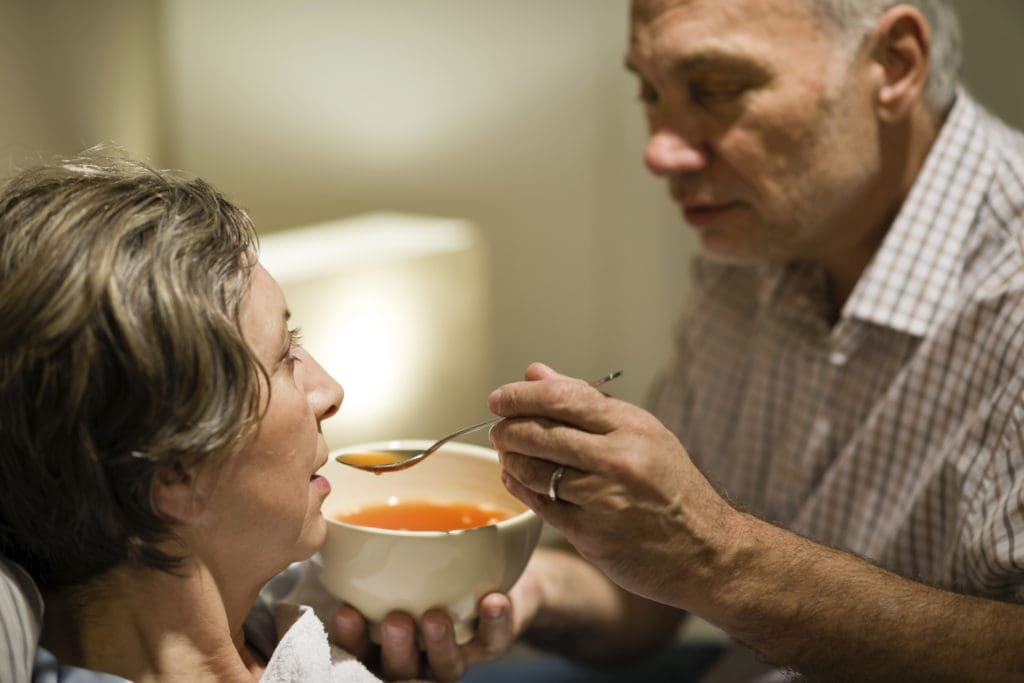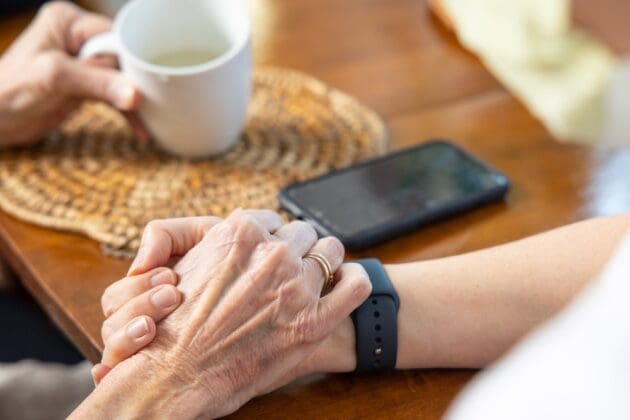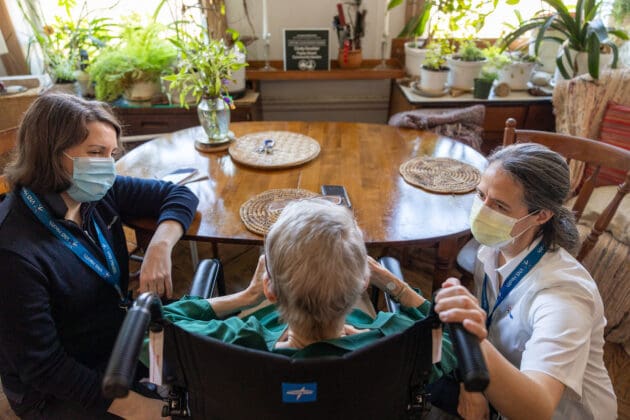
As your loved one approaches the end of life, their appetite may decrease or even go away. Caregivers, family members, and friends often become concerned as their loved one loses interest in eating and drinking. They may think the dying person needs to eat to keep up their strength. They worry that the person is feeling hunger and thirst and that not eating or drinking will make them die sooner.
Concern when a dying person stops eating is natural, but they aren’t suffering. At the end of life, the desire to eat and drink gradually disappears, and a person’s nutritional needs change.
Loss of Appetite is Natural and Expected
In the weeks and days before death, the body slowly shuts down. During this time, your loved one will gradually lose interest in food. As death approaches, feelings of hunger go away. This is normal.
Loss of appetite isn’t starvation. Starvation happens when a healthy person doesn’t get enough food, and they feel intense hunger. When someone is dying, the body can no longer absorb or make use of food. Your loved one will eat less and may prefer liquids and softer foods before their appetite disappears.
Hospice care supports individuals at the end of life, as well as their families, with medical, emotional, and spiritual care. The goal is to help make the last months as comfortable and meaningful as possible.
Dehydration may bring relief.
As your loved one nears death, they will also gradually lose interest in drinking. This isn’t dehydration. Dehydration happens when a healthy person doesn’t get enough fluids, and they feel strong thirst. A dying person doesn’t feel thirsty. Again, this is normal — your loved one isn’t suffering. In fact, medical evidence clearly shows that during the last days of life, loss of thirst can actually make your loved one more comfortable. When they stop drinking, they may stop vomiting or having diarrhea. Coughing, congestion, and mucus in the lungs may decrease. They may have less pain if they have tumors. Swelling caused by too much fluid may go down.
Accept Your Loved One’s Changing Appetite
Encouraging or forcing a dying person to eat or drink can cause problems. In the final few days before death, their digestive system and kidneys are shutting down. Instead of helping, eating or drinking can cause:
- Nausea, vomiting, bloating, and abdominal pain
- Choking and coughing, especially if your loved one is having trouble swallowing
As a hospice patient nears the end of life and gradually stops eating, family members often ask about placing a feeding tube. In almost all cases, a feeding tube or an IV will cause distress and pain for your loved one and won’t help prolong their life. At the same time, providing nourishment is a central part of how we care for those we love. As the end of life nears, you can still provide support and comfort with food by following your loved one’s desires.
Some things you can do to help:
- Allow your loved one to choose the foods they find most appealing.
- Don’t force your loved one to eat or drink, and don’t point out to them that they are eating and drinking less.
- To prevent your loved one from choking, have them upright when eating. Offer drinks through a straw.
- Make mealtime quiet and pleasant.
- Make the most of breakfast — appetite tends to be higher at the start of the day.
- Offer favorite foods in small amounts.
- Offer pureed foods, thick soups, and soft foods such as gelatin pudding, and ice cream.
- Offer liquid nutritional supplements.
- Have favorite drinks available.
- Encourage your loved one to rest after meals.
- Help your loved one to practice good mouth care, and offer ice chips and sips of water for dry mouth.
- Apply lip balm as needed for dry lips.
People who stop eating and drinking eventually fall into a deep sleep and usually die in 1–3 weeks. Although these changes can cause you to worry, they are a natural part of the end of life. With your help, this transition can be more comfortable for your loved one.


